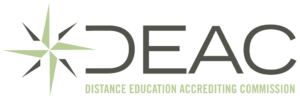The world is becoming increasingly interconnected, and with that comes a growing population of English Language Learners (ELLs). For English Language Learners (ELL), the journey to language proficiency can be both challenging and rewarding.
These students bring a wealth of experience and knowledge to the classroom, but they also face unique challenges in acquiring a new language. To effectively support their learning journey, educators need specialized skills and knowledge.
That’s where ELL certificates come in, offering a valuable pathway for educators to facilitate language acquisition and enhance teaching skills. These certificates focus on essential aspects of language acquisition, including linguistics, cultural competence, instructional methods, and assessment techniques.
Not familiar with the term ELL certification? Let’s learn more about it first.
What are ELL Certificates?
ELL certificates are professional development programs designed to equip educators with the tools and strategies to effectively teach English to non-native speakers. These programs typically cover topics like:
- Second language acquisition theory: Understanding how people learn languages helps teachers create effective learning environments.
- Language assessment: Effectively assessing ELLs’ progress allows teachers to identify strengths and weaknesses and adjust instruction accordingly.
- Instructional methods for ELLs: These methods cater to various learning styles, from utilizing visual aids to providing learning support.
- Cultural competency: Understanding and appreciating students’ cultural backgrounds fosters a more inclusive classroom environment.
How Can ELL Certificates Benefit Teachers?
Earning an ELL certificate offers several advantages for educators working with ELLs:
- Enhanced Skills: The programs equip teachers with practical strategies and techniques to deliver engaging and effective instruction.
- Increased Confidence: By gaining a deeper understanding of language acquisition and cultural competency, teachers feel more confident in their ability to support ELLs.
- Career Advancement: In many school districts, ELL certification can be a requirement or a desirable qualification for teaching positions with ELL populations.
Ready to take your teaching career to the next level?
If you’re passionate about helping ELL students succeed, consider taking the next step in your professional development with an English Language Learners certification or an advanced degree such as Master of Education in English as a Second Language.
A Master of Education in English as a Second Language (MESL) degree offers a significant advantage for educators seeking a deeper understanding of language acquisition and a broader range of teaching skills. This comprehensive program will equip you with the knowledge, skills, and confidence to become a true leader in the field of ELL education.
The course curriculum is meticulously crafted to enhance and fortify the skills of classroom teachers. Drawing from the latest research-backed educational strategies and knowledge, the curriculum covers a comprehensive range of topics, including learning theory, educational foundations, brain theory, best practices, curriculum development, standards, and assessment.
MESL programs typically delve into:
- Advanced theory and research in second language acquisition
- Developing specialized curriculum for ELLs
- Leadership in ELL programs and advocacy
- Integrating technology into ELL instruction
Whether you’re a seasoned educator or just starting your career, an online Master’s degree in ESL can open doors to new opportunities and empower you to make a difference in the lives of ELL students. Take the first step towards mastering language education – enroll in Acacia University’s ESL Masters Program online today!
By investing in your education, you’ll be making a significant impact on the lives of your students, empowering them to reach their full potential in an increasingly globalized world.













